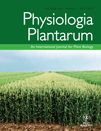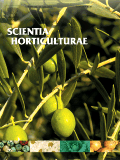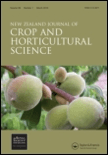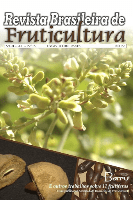
Horticulturae
Scope & Guideline
Advancing Horticultural Science for a Sustainable Future.
Introduction
Aims and Scopes
- Plant Genetics and Genomics:
The journal publishes research on the genetic and genomic aspects of horticultural crops, including genome-wide association studies, gene expression analysis, and the identification of key genes related to traits such as fruit quality and stress tolerance. - Sustainable Horticultural Practices:
A significant focus is placed on sustainable agriculture, including the use of biostimulants, organic fertilizers, and innovative cultivation techniques that reduce environmental impact while enhancing crop yield and quality. - Physiological and Biochemical Responses to Stress:
Research articles explore how horticultural plants respond to various abiotic stresses (e.g., drought, salinity, temperature) and biotic stresses (e.g., pathogens), contributing to a better understanding of plant resilience and adaptation. - Postharvest Technology:
The journal addresses postharvest handling, storage, and quality preservation techniques for fruits and vegetables, including the use of coatings, modified atmosphere packaging, and treatments to extend shelf life. - Crop Production and Management:
Studies on crop management practices, including irrigation strategies, nutrient management, and the impact of environmental factors on crop performance, are commonly featured. - Innovative Technologies in Horticulture:
The journal also emphasizes the application of emerging technologies such as machine learning, remote sensing, and biotechnological innovations in the horticultural sector.
Trending and Emerging
- Biostimulants and Natural Products:
There is a growing emphasis on the use of biostimulants, including plant-derived products and microbial inoculants, to enhance plant growth, resilience, and nutritional quality, highlighting a shift towards sustainable agricultural practices. - Climate Resilience and Adaptation:
Research focusing on how horticultural crops can adapt to climate change, including studies on heat tolerance and drought resistance, is increasingly prevalent, reflecting the urgent need for climate-smart agricultural practices. - Precision Agriculture Technologies:
The adoption of precision agriculture tools, such as remote sensing, machine learning, and data analytics, has gained momentum, allowing for more efficient and targeted horticultural practices. - Functional Foods and Nutraceuticals:
There is a rising interest in the health benefits of horticultural crops, with studies exploring the nutritional and medicinal properties of fruits and vegetables, as consumers increasingly seek functional foods. - Genetic Engineering and CRISPR Technology:
The application of advanced genetic techniques, particularly CRISPR/Cas9 for crop improvement, is becoming a prominent focus, as researchers aim to develop traits for disease resistance and yield enhancement.
Declining or Waning
- Traditional Breeding Techniques:
There has been a noticeable decrease in publications focused solely on traditional breeding methods, as the field shifts towards molecular breeding and genetic engineering techniques that offer more precise and efficient approaches. - General Agronomy Studies:
Research that broadly covers agronomy without a specific focus on horticultural crops has become less prevalent, with a trend towards more specialized studies that address specific horticultural challenges. - Soil Science:
While soil health is crucial for horticulture, studies solely focused on soil science without a direct connection to horticultural practices have diminished, as the emphasis has shifted to integrated approaches involving soil management and crop production. - Pest Control Using Chemical Methods:
There is a notable decline in research centered around chemical pest control methods, as the emphasis in horticulture increasingly favors integrated pest management strategies that utilize biological control agents and sustainable practices.
Similar Journals

Scientific Papers-Series B-Horticulture
Exploring Innovations in Horticulture and Sustainable Agriculture.Scientific Papers-Series B-Horticulture is a distinguished open-access journal published by the University of Agronomic Sciences and Veterinary Medicine Bucharest. With its ISSN 2285-5653 and E-ISSN 2286-1580, this journal has been accessible to the global research community since 2002, ensuring that vital horticultural research reaches a wide audience without barriers. Positioned at the forefront of the horticultural sciences, the journal serves as a platform for original research, reviews, and innovations pertaining to horticultural practices, plant physiology, and sustainable agriculture. Its contributions are not just significant in Romania but also resonate through the international scientific community, helping to address pressing agricultural challenges. The office located at 59 Marasti Boulevard, District 1, Bucharest 011464, Romania, symbolizes its commitment to advancing horticultural knowledge and fostering collaboration among researchers, professionals, and students alike. With no current H-index data, the journal invites continued contributions to enhance its visibility and impact in the field.

Horticultural Plant Journal
Nurturing Insights in Horticulture and EcologyThe Horticultural Plant Journal, published by KEAI PUBLISHING LTD, stands at the forefront of horticultural research and innovation. With an ISSN of 2095-9885 and an E-ISSN of 2468-0141, this open access journal has been committed to disseminating significant findings in horticulture since 2015. As of 2023, it proudly holds prestigious Q1 rankings across multiple categories, including Biochemistry, Genetics and Molecular Biology, Ecology, and Plant Science, reflecting its impactful contributions to diverse scientific fields. Located in Beijing, China, the journal not only facilitates groundbreaking studies but also provides crucial insights into sustainability and environmental issues, being ranked in the top tiers of relevant disciplines. This makes it an invaluable resource for researchers, professionals, and students who aim to stay at the cutting edge of horticultural science, offering them the latest research that informs both academic understanding and practical application.

PHYSIOLOGIA PLANTARUM
Connecting Researchers to the Frontiers of Plant SciencePHYSIOLOGIA PLANTARUM, published by WILEY, is a prestigious journal in the fields of plant science, physiology, and genetics, known for its impactful contributions since its inception in 1948. With an impressive impact factor and a consistent ranking in the Q1 and Q2 quartiles, it stands out in critical disciplines such as cell biology and biochemistry, ranking #24 in Plant Science with a remarkable 95th percentile standing. This journal primarily serves researchers and professionals committed to advancing the understanding of plant functions, responses, and their molecular mechanisms. Its broad scope allows for a diverse array of studies, ensuring that groundbreaking research is accessible to the global scientific community. Although it does not offer Open Access, PHYSIOLOGIA PLANTARUM remains a vital resource for scholars looking to stay at the forefront of plant biology and related fields.

SCIENTIA HORTICULTURAE
Exploring the forefront of plant cultivation and management.SCIENTIA HORTICULTURAE, published by Elsevier, is a leading journal in the field of horticulture, with an impressive impact factor reflected in its Q1 ranking (2023) and position as #6 out of 115 in the Scopus category for Agricultural and Biological Sciences. This journal plays a pivotal role in disseminating cutting-edge research and innovations in horticultural science and technology, contributing significantly to the understanding of plant cultivation, production, and management. With continuous publication since 1973, SCIENTIA HORTICULTURAE offers an essential platform for researchers, professionals, and students alike who are focused on the advancement of sustainable horticultural practices. Although it is not an open-access journal, it provides a wealth of data and findings that can be accessed through institutions and libraries. Located in the Netherlands at RADARWEG 29, 1043 NX AMSTERDAM, this journal remains an invaluable asset to the global horticultural community throughout its converged years, fostering collaboration and elevating standards in horticulture research.

JOURNAL OF HORTICULTURAL SCIENCE & BIOTECHNOLOGY
Pioneering sustainable practices in horticulture and biotechnology.JOURNAL OF HORTICULTURAL SCIENCE & BIOTECHNOLOGY, published by Taylor & Francis Ltd, stands as a prestigious platform in the realms of both horticulture and biotechnology. With an ISSN of 1462-0316 and an E-ISSN of 2380-4084, this journal showcases cutting-edge research that advances our understanding of plant science and genetic innovation. Operating under the publication umbrella from 1996 to 2024, the journal has achieved notable rankings, placing in the Q3 quartile for Genetics and Q2 for Horticulture in 2023. With a Scopus ranking of #25/115 in Agricultural and Biological Sciences (Horticulture) and a respectable 78th percentile, it is highly regarded among researchers and professionals alike. While currently not designated as Open Access, the journal remains crucial for academics keen on disseminating groundbreaking findings and techniques that foster advancements in agricultural productivity and sustainability. As an essential resource for researchers, professionals, and students, JOURNAL OF HORTICULTURAL SCIENCE & BIOTECHNOLOGY not only facilitates knowledge sharing within its community but also serves as a vital reference point for future innovations in the field.

NEW ZEALAND JOURNAL OF CROP AND HORTICULTURAL SCIENCE
Exploring Innovations in Agronomy and HorticultureThe New Zealand Journal of Crop and Horticultural Science, published by Taylor & Francis Ltd, stands as a key resource in the fields of Agronomy and Horticulture, with a commendable impact factor reflecting its quality and influence in the scientific community. Since its inception in 1989, this journal has been committed to advancing our understanding of crop development and horticultural practices, catering not only to researchers and professionals but also to students eager to delve into the intricacies of plant sciences. With a Q3 ranking in both Agronomy and Crop Science and Horticulture as of 2023, the journal occupies a significant position within the agricultural and biological sciences domain, significantly contributing to the body of knowledge in these fields. The journal features original research, reviews, and technical notes that cover a wide range of topics, ensuring a comprehensive perspective on contemporary and emerging agricultural issues. For individuals interested in accessing cutting-edge research, the journal provides subscription-based access, further enhancing its scholarly contributions.

aBIOTECH
Transforming ideas into groundbreaking solutions in life sciences.aBIOTECH, published by SPRINGERNATURE, is a premier academic journal dedicated to advancing the fields of biotechnology, agronomy, and molecular biology. With an impressive ISSN of 2096-6326 and E-ISSN 2662-1738, this journal has established itself as a vital resource for researchers and professionals aiming to publish high-quality, impactful studies. Based in Singapore, aBIOTECH has achieved remarkable recognition, boasting a Q1 ranking in multiple categories including Agronomy and Crop Science, Biochemistry, and Genetics in the 2023 Scopus rankings. Its solid position in the 90th percentile for Biochemistry and Genetics reinforces its significance within the global scientific community. The journal covers a broad spectrum of topics relevant to both basic and applied research, facilitating a shared dialogue amongst scientists and encouraging collaborative progress in innovative biotechnological applications. The open-access nature of the journal ensures that cutting-edge research is freely available, fostering a global exchange of ideas that is critical to the advancement of science today.

Horticulture Environment and Biotechnology
Nurturing Knowledge for Sustainable Agricultural PracticesHorticulture Environment and Biotechnology is a prestigious journal published by the Korean Society of Horticultural Science, dedicated to advancing knowledge in the fields of horticulture, biotechnology, and plant science. Since its inception in 2011, this journal has played a crucial role in disseminating high-quality research, evidenced by its 2023 category quartile rankings, which position it in Q1 for Horticulture and Q2 for Biotechnology and Plant Science. With impressive Scopus rankings, including Rank #18 out of 115 in Horticulture, the journal continues to demonstrate its significance within the academic community by contributing to innovative practices and findings that impact both environmental sustainability and horticultural advancements. Currently, the journal is accessible to a global audience, facilitating the exchange of ideas and research outcomes with no open-access fees. Horticulture Environment and Biotechnology strives to support researchers, professionals, and students alike by providing a platform for critical discussions on the intersection of horticultural science and biotechnology, thereby fostering the development of sustainable agricultural practices that align with contemporary challenges.

PHYSIOLOGY AND MOLECULAR BIOLOGY OF PLANTS
Enhancing Crop Production with Cutting-Edge ResearchPHYSIOLOGY AND MOLECULAR BIOLOGY OF PLANTS, published by SPRINGER, is a vital journal focused on the advancing field of plant science. Featuring research that spans physiology, molecular biology, and their applications in agriculture, this journal is pivotal for academics, professionals, and students keen on understanding plant processes and enhancing crop production. With an ISSN of 0971-5894 and an E-ISSN of 0974-0430, this journal is recognized for its scholarly significance, ranking in the Q3 category in Molecular Biology, Q2 in Physiology, and Q1 in Plant Science as of 2023. The journal maintains a strong position in the Scopus rankings, with notable percentile rankings including 87th in Plant Science. Established in 2000, this publication aims to foster the dissemination of cutting-edge research by providing a platform for open discussion and knowledge sharing about plant physiology and molecular mechanisms. While it does not currently offer open access options, its comprehensive studies and reviews serve as an essential resource for enhancing our understanding of plant biology.

Revista Brasileira de Fruticultura
Elevating Research in Agronomy and HorticultureRevista Brasileira de Fruticultura, published by the Sociedade Brasileira de Fruticultura, is a leading scholarly journal dedicated to the advancement of research in the fields of agronomy, crop science, food science, horticulture, and plant science. With an impressive Open Access model adopted since 2001, the journal is committed to disseminating high-quality research from Brazil and beyond, promoting innovation and collaboration among researchers, professionals, and students alike. The journal currently holds a respectable Q3 category ranking in multiple fields as of 2023, reflecting its significance within the scientific community, specifically ranked #72 in horticulture and #257 in agronomy, among its peers. The Revista Brasileira de Fruticultura not only serves as a platform for original research articles, reviews, and case studies but also emphasizes practical applications and sustainable practices in fruit cultivation. Its aim is to enhance the visibility of Brazilian fruit research on a global scale, making it an invaluable resource for those invested in advancing horticultural sciences.